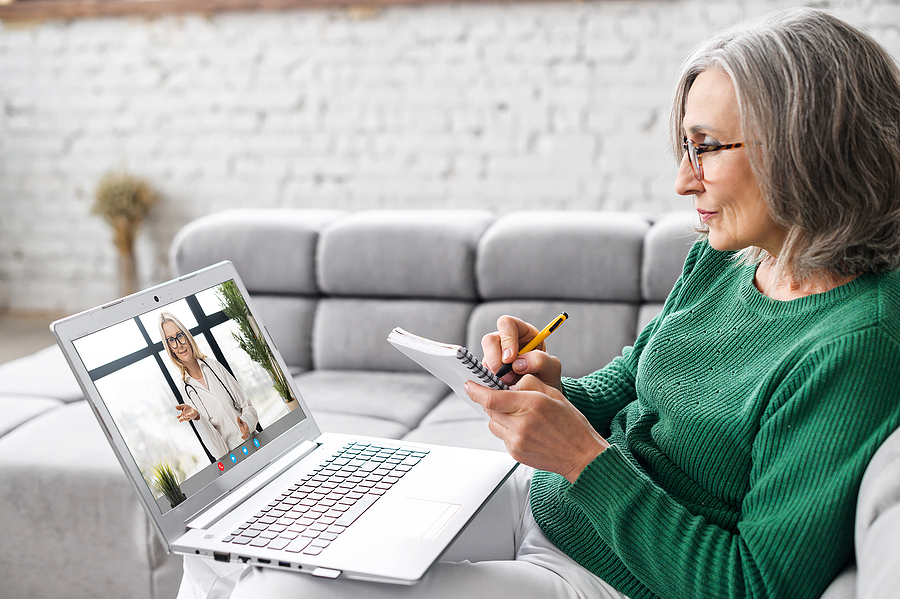That was the theme of International Women’s Day this year and the health system is as biased as any. But how to deal with it?
The bias under the IWD spotlight is, of course, the prejudice, stereotyping and poor treatment often meted out to women.
But prejudice can be multi-layered and one such layer is age. Ageism is bias and stereotyping based on age.
Regardless of our gender, size, race, culture, class, sexual orientation and so forth, everybody ages, so this is the one form of discrimination we’ll all experience if we live long enough, and we need to be alert to it.
Be aware that ageism exists
Our culture is heavily weighted towards youth. How do we know? It’s no accident that Australia is in the top 10 countries for spending on cosmetic procedures. Clearly, we don’t exactly revere ageing.
Ageism was also identified by the Royal Commission into Aged Care Quality and Safety as a key reason for the mistreatment of older people in institutional settings.
The Commission’s recommendations included treating aged care residents with respect and as individuals and equal citizens. It says everything that we needed a recommendation to tell us that.
Since the health system is largely run by human beings, the majority of whom are younger than us, it’s inevitable that ageism (and other ‘isms’) will show up in various ways.
For example, practitioners can make unconscious decisions based on their view of people our age. I’ve read of patients not being offered a full range of treatment options for an injury because it’s not expected that they’d need to do anything vigorous with that part in future.
As has often been noted, older people are rarely asked about their sex lives because it’s assumed that after some point we’re past it.
Some not-so-tech-savvy older people might also feel excluded by the way health services expect everyone to use a smart phone or receive their test results digitally.
While most of our interactions will probably be excellent, we need to bear in mind that bias can happen, and we may have to ask more questions, make requests or provide more information to get the best results.
Do something (appropriate) in response
If you’re unhappy with the way you’re being treated, don’t put up with it. You’re the customer. If you feel comfortable expressing your concerns, do that. Or vote with your feet and go elsewhere.
Our relationships with health and medical practitioners are a two-way street and we need to take responsibility for our part.
It can be tempting to put them on a pedestal but this could stop us from getting our needs met.
For instance, if we decide they’re superior we might not ask questions because we feel stupid, we won’t want to upset them by querying their judgement, or we might be worried about wasting their time.
We’re more likely to accept them talking over our heads, let ourselves be rushed into making decisions, and not feel we can seek other opinions.
None of which works. It’s important to take a deep breath and put our health first. Practitioners, no matter how senior, are still people. They have certain qualifications, but they’re not infallible. And what suited their last patient might not suit you.
This means asking questions until we understand. Writing notes if that helps. Or taking someone with us to write notes. It might mean asking for extra time to think about a proposed course of treatment. And getting other opinions.
We deserve to know all our options, and the pros and cons of each. And we deserve to be treated with dignity and given the time we need.
If a practitioner won’t give us that, it’s time to walk away and find someone who will.
GPs are central to our medical system, so we need one we feel confident in and at ease with. We need them to listen and take our concerns seriously. If you don’t have that, shop around until you do.
And if they refer you to someone you’re not comfortable with, ask for a new referral.
Check your own bias
Bias is also a two-way street, and none of us is immune to it. For the first part of our lives doctors were usually male, white and sounded ‘Australian’. Times have changed and we need to change too.
We can’t expect to be respected and treated as individuals if we get on our high horse with practitioners of another race or culture, especially if their English isn’t perfect or we struggle with their accent. We need to stay open-minded and make an effort.
We also need to watch the assumptions we make about ourselves. If something isn’t right with our health or our bodies we need to follow it up, not brush it off as ‘probably just old age’.
Bias is a part of life. It’s unlikely we’ll ever ‘break’ or remove it. But we can be on the front foot with it.
Photo Source: Bigstock

